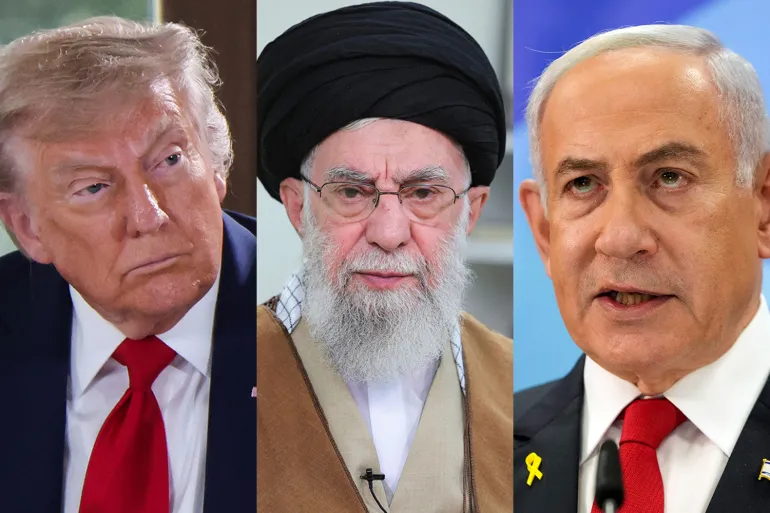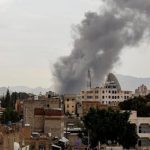The recent Israeli strike in Qatar, targeting high-ranking Hamas figures, has left the world questioning not only the motives behind the move but also the scale of preparation that went into it. Intelligence experts, military analysts, and diplomatic observers are now piecing together the timeline to understand how long Israel had been preparing for the Qatar strike.
- The Context Behind the Qatar Strike
- Israel’s Tradition of Long-Term Military Planning
- The Role of Intelligence in the Lead-Up to the Strike
- Diplomatic Considerations in Planning
- Timing of the Strike: Coincidence or Strategic Choice?
- Expert Opinions on Israel’s Preparation
- Historical Precedents of Israeli Operations Abroad
- Implications for Qatar and the Wider Region
- The U.S. Factor
- What the Strike Reveals About Israel’s Strategic Patience
- FAQs
- Why did Israel target Hamas leaders in Qatar?
- How long was Israel preparing for the Qatar strike?
- Did the U.S. know about Israel’s plan?
- What does this strike mean for Qatar’s role in the region?
- How does this fit into Israel’s history of overseas operations?
- Conclusion
The event has sparked international debate over regional stability, the reach of Israel’s intelligence apparatus, and the potential implications for U.S. foreign policy in the Middle East. With Qatar hosting a delicate balance of Western alliances and ties with Islamist groups, the attack raises the question: Was this an impulsive response to immediate threats, or a meticulously planned operation months—or even years—in the making?
The Context Behind the Qatar Strike
Israel’s strike in Qatar did not happen in a vacuum. For decades, Qatar has been seen as a unique actor in the Middle East. While serving as a close U.S. ally, hosting Al Udeid Air Base and American troops, Doha has simultaneously provided a safe haven for Hamas leaders in exile. This dual role allowed Qatar to position itself as a mediator between warring sides, but also made it a contentious player in the eyes of Israel.
The strike came at a moment of heightened tensions. In the aftermath of escalating violence in Gaza and continued Hamas operations, Israel argued that Qatar’s hosting of Hamas leaders allowed militant activities to be coordinated far from the battlefield. According to Israeli officials, targeting Hamas leaders abroad was not just retaliation but a matter of national security. This raises the central question: how long had Israeli intelligence been watching, waiting, and preparing for such a strike on Qatari soil?
Israel’s Tradition of Long-Term Military Planning
Israel is no stranger to covert planning and targeted operations. From the daring 1976 Entebbe raid in Uganda to the 2010 assassination of Mahmoud al-Mabhouh in Dubai, Israel has a long history of executing complex missions beyond its borders. Each of these operations required months—sometimes years—of surveillance, infiltration, and coordination between Mossad, military intelligence, and political leadership.
In the case of the Qatar strike, analysts argue that Israel likely relied on extensive surveillance networks. Signals intelligence, human intelligence from assets on the ground, and satellite monitoring may have been used to track the movements of Hamas leaders residing in Qatar. Preparing for such an operation would have required not only tactical planning but also weighing the significant diplomatic consequences of striking in a country closely allied with the United States.
The Role of Intelligence in the Lead-Up to the Strike
Military operations of this scale depend on intelligence accuracy. Sources suggest that Israel’s Mossad had been monitoring Hamas leaders in Qatar for years, possibly maintaining constant watch over their residences, movements, and communications. The question was not whether Israel knew where these leaders were, but when the timing was right to act.
Former intelligence officials have explained that precision strikes like this often require a “window of opportunity.” That means not only knowing the location of a target but also ensuring minimal civilian casualties, managing airspace logistics, and anticipating international reaction.
If Israeli planes or drones were involved in the Qatar strike, the operation would have required coordination of flight paths to avoid detection, and possibly covert staging areas in neighboring countries. This level of detail cannot be improvised; it suggests preparation stretching back months at the very least.
Diplomatic Considerations in Planning
Striking in Qatar was never going to be a simple military decision. Qatar’s unique role as both an ally of the West and a patron of Hamas made it a sensitive arena for Israeli action. Diplomatically, Israel would have considered potential backlash from Washington, which relies heavily on Qatar for military basing and regional diplomacy.
The question of preparation ties directly into these diplomatic calculations. If Israel had indeed been planning this strike for an extended period, it likely weighed the geopolitical costs repeatedly. Did Israeli leaders give the U.S. advance notice? Some reports suggest Washington was caught off guard, while others hint at quiet discussions behind closed doors. Regardless, the secrecy surrounding the operation underscores how sensitive the decision was. Long-term planning, rather than rash retaliation, appears more plausible in this light.
Timing of the Strike: Coincidence or Strategic Choice?
Timing is often the most revealing indicator of preparation. The strike occurred shortly after a series of Hamas escalations, including rocket attacks and suspected planning of operations outside Gaza. By targeting Hamas leaders in Qatar, Israel sent a message not only to Hamas but also to Qatar itself: no location, however politically protected, is beyond reach.
The timing also coincided with shifting regional dynamics. Saudi Arabia and other Gulf nations have recently signaled closer security ties with Israel, particularly after the Abraham Accords. By striking Hamas figures in Qatar, Israel may have aimed to weaken Doha’s credibility as Hamas’s protector and indirectly strengthen its standing with Gulf states more aligned against Islamist militancy. This suggests that the strike was strategically timed, not hastily executed.
Expert Opinions on Israel’s Preparation
Military experts are divided on the length of preparation, but most agree that such a strike could not have been spontaneous. Retired Brigadier General Shlomo Brom, an Israeli defense analyst, argued that operations targeting leaders abroad “are never improvised. These missions are part of long-term strategies where you wait for the right moment to strike.”
American security analyst Michael O’Hanlon from the Brookings Institution added that the complexity of striking in a country like Qatar—protected by U.S. security partnerships—indicates “significant forethought, coordination, and risk calculation.” He suggested that Israel had likely “war-gamed” scenarios for years, only executing when Hamas’s activity reached a threshold deemed intolerable.
Historical Precedents of Israeli Operations Abroad
The Qatar strike fits into a broader pattern of Israel’s overseas operations. For decades, Israeli security doctrine has rested on the principle of preemption and deterrence, often carried out beyond its borders.
- Munich Revenge Operations (1970s): After the Munich Olympics massacre, Mossad carried out targeted killings of those involved, many in European cities. Planning for these missions often stretched over months.
- Syria and Iran Operations: Israeli airstrikes on Syrian territory targeting Iranian militias and weapons convoys are frequent, requiring constant monitoring and intelligence updates.
- Dubai Assassination of Mahmoud al-Mabhouh (2010): This complex operation involving multiple agents and forged passports was later revealed to have been prepared for months.
Seen against this backdrop, the Qatar strike was not an anomaly but part of a consistent Israeli playbook—one that relies heavily on patience, secrecy, and timing.
Implications for Qatar and the Wider Region
For Qatar, the strike represents an embarrassing breach of its sovereignty. While Doha has long tolerated Hamas’s political leadership on its soil under the pretense of facilitating mediation, Israel’s actions highlight the risks of harboring militant leaders. Internationally, Qatar may now face pressure to distance itself from Hamas or risk further escalations.
Regionally, the strike could shift the balance of power. Gulf states like the UAE and Saudi Arabia, which oppose Islamist movements, may quietly welcome Israel’s boldness. Conversely, Iran and Turkey, strong supporters of Hamas, are likely to see the strike as provocative, potentially escalating tensions further.
The U.S. Factor
Washington finds itself in an uncomfortable position. The U.S. depends on Qatar as a critical hub for military operations in the Middle East, but it also considers Hamas a terrorist organization. While official U.S. statements have been cautious, the strike raises questions about whether the Biden administration—or any future administration—will tolerate Israel taking unilateral action in countries so central to U.S. strategy.
If Israel had been preparing the Qatar strike for months or years, it is almost certain U.S. officials were at least aware of the possibility. Whether Washington silently approved or was caught off guard will shape future U.S.-Israel-Qatar relations.
What the Strike Reveals About Israel’s Strategic Patience
The central question—how long Israel had been preparing the Qatar strike—does not have a simple answer. However, given Israel’s history of meticulous intelligence work, the logistical complexity of striking in a heavily monitored Gulf state, and the diplomatic sensitivities involved, the evidence strongly suggests that planning began well before the immediate provocations.
This reflects Israel’s broader doctrine of strategic patience. Rather than striking hastily, Israeli intelligence and military planners often gather information for years, waiting for the right moment when operational, political, and diplomatic conditions align. The Qatar strike is likely another example of this long-game strategy.
FAQs
Why did Israel target Hamas leaders in Qatar?
Israel targeted Hamas leaders in Qatar because it accused them of directing militant operations from Doha. Israeli officials argue that eliminating these figures was necessary to disrupt Hamas’s command structure and deter future attacks.
How long was Israel preparing for the Qatar strike?
While the exact timeline remains classified, experts believe preparation spanned months or even years. Intelligence gathering, surveillance, and diplomatic considerations would have required extensive planning well before the strike occurred.
Did the U.S. know about Israel’s plan?
It is unclear whether Washington had advance knowledge. Some reports suggest the U.S. was surprised, while others indicate quiet discussions may have taken place behind the scenes. The U.S. position remains carefully balanced due to its reliance on Qatar as a military ally.
What does this strike mean for Qatar’s role in the region?
The strike places Qatar in a difficult position. While it has long hosted Hamas leaders, this event exposes the risks of its dual role as both a U.S. ally and a supporter of Islamist groups. Doha may now face increased pressure to choose between its Western alliances and its regional relationships.
How does this fit into Israel’s history of overseas operations?
The Qatar strike is consistent with Israel’s long history of targeting adversaries abroad, from the Munich revenge operations to assassinations in Dubai. Each of these missions relied on careful planning and execution, suggesting a similar approach in Qatar.
Conclusion
The question of how long Israel had been preparing the Qatar strike touches on more than just military strategy. It reveals the depth of Israel’s intelligence capabilities, the delicate balance of Middle Eastern diplomacy, and the extraordinary patience with which Israel pursues its security objectives.
While the world may never know the exact timeline, the evidence suggests that this was not a spur-of-the-moment decision. Instead, it was the culmination of years of surveillance, risk assessment, and strategic calculation. The strike underscores Israel’s willingness to act beyond its borders when it perceives existential threats and signals to adversaries across the region that time and distance offer no protection from its reach.







